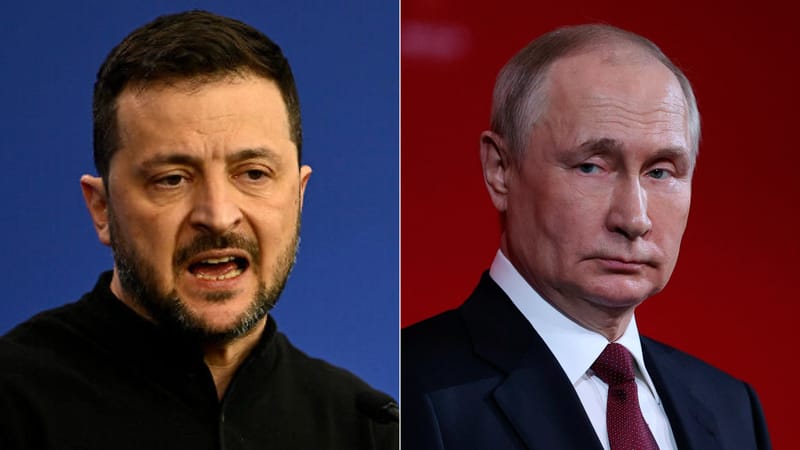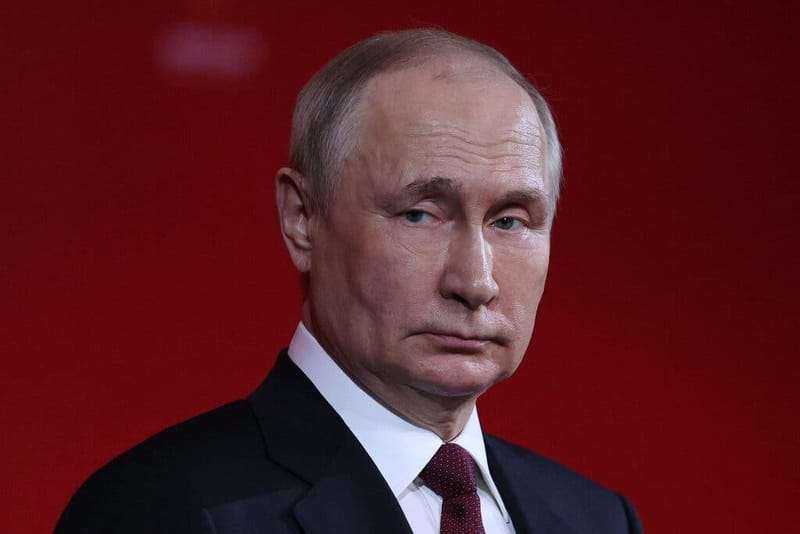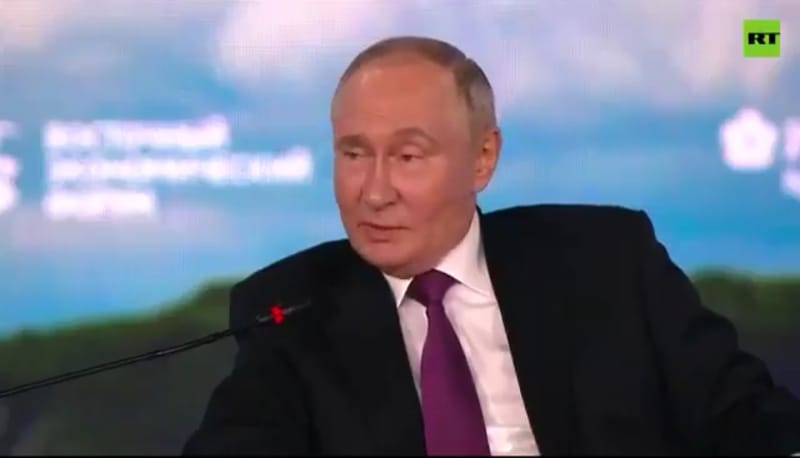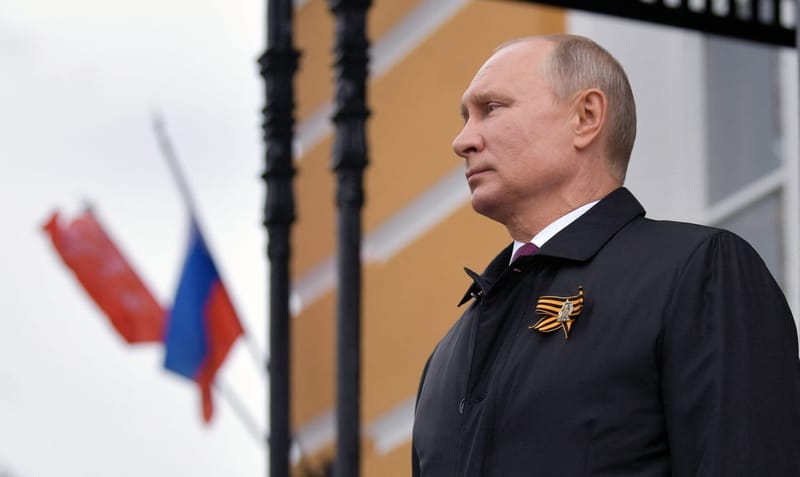Putin's New Decree: A Haven for Anti-Liberal Foreigners in Russia
In a move that underscores Russia's ongoing cultural and ideological battle with the West, President Vladimir Putin has signed a decree that simplifies the process for foreigners to relocate to Russia if they oppose what he terms as "destructive neoliberal" policies in their home countries. This
In a move that underscores Russia's ongoing cultural and ideological battle with the West, President Vladimir Putin has signed a decree that simplifies the process for foreigners to relocate to Russia if they oppose what he terms as "destructive neoliberal" policies in their home countries. This initiative, aimed at those who align with what Russia describes as "traditional Russian spiritual and moral values," does not require applicants to demonstrate proficiency in Russian language, history, or laws, nor does it adhere to governmental quotas for immigration.
The decree, signed on August 19, 2024, represents a strategic outreach to individuals globally who feel disenfranchised by the liberal policies of their governments. It allows these foreigners to apply for temporary residence in Russia, offering them a sanctuary from what the Russian government perceives as the erosion of traditional values in the West.
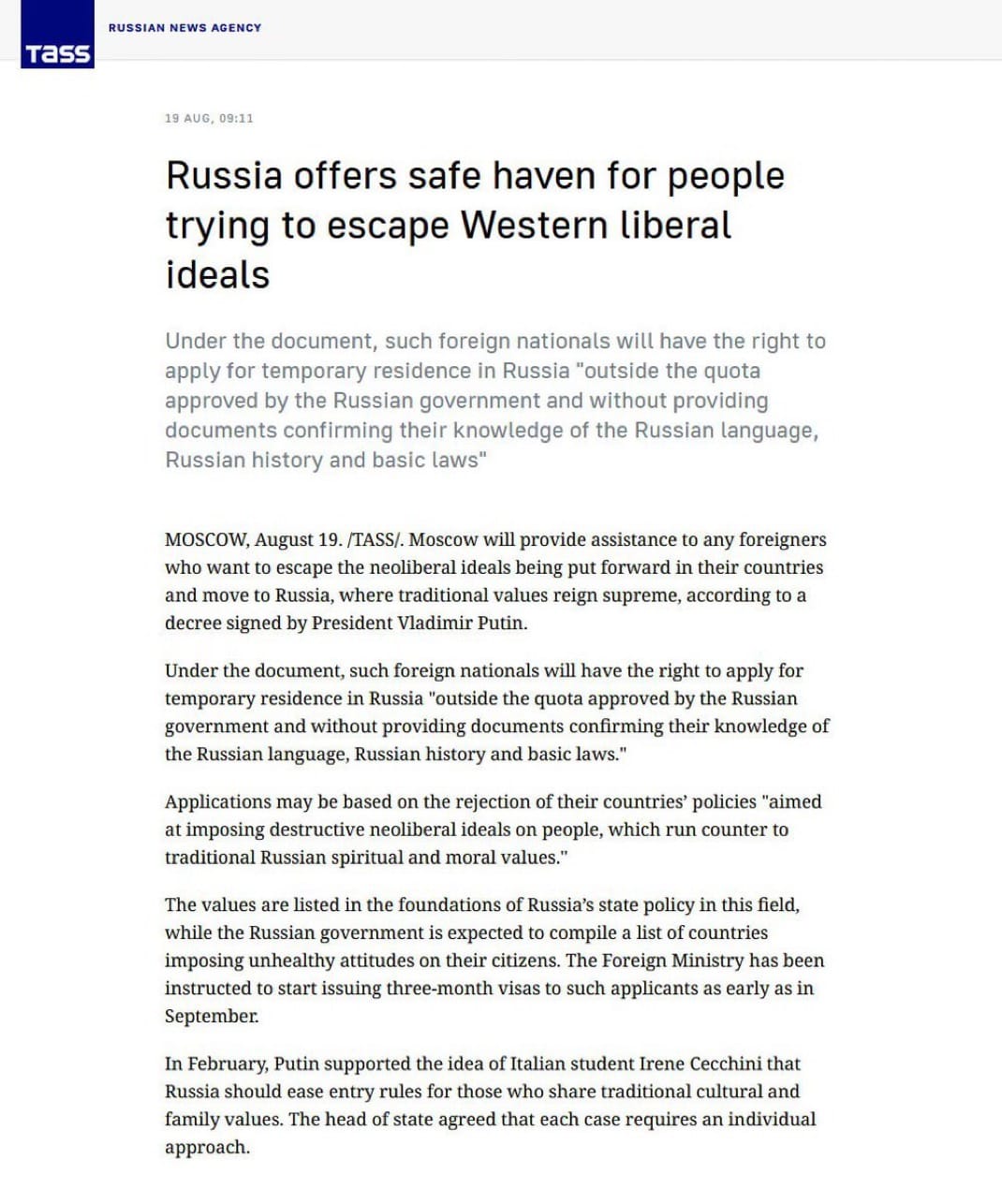
Under this new policy, interested foreigners need only to submit a letter explaining their desire to relocate due to their political or ideological views at a Russian embassy or consulate. Once approved, they receive a three-month single-entry visa, paving the way for them to apply for temporary residence within Russia.
This move by Putin is seen as part of a broader geopolitical strategy to position Russia as a bastion of traditional values against the backdrop of what many in Russia view as the moral decay of Western societies. The decree not only serves as an ideological statement but also potentially as a demographic strategy to counteract Russia's population decline by attracting like-minded individuals from abroad.
The reaction on social media platforms like X has been mixed, with some users expressing interest or support for the initiative, viewing it as an escape from what they describe as oppressive liberal ideologies in their home countries. Critics, however, argue that this could be a propaganda tool to further isolate Russia from Western influence, potentially attracting individuals who might not fully integrate into Russian society due to the lack of language and cultural prerequisites.
This decree comes at a time when Russia has been actively promoting its cultural and moral values both domestically and internationally, often in contrast to Western liberal democracy. While the long-term implications of this policy on Russia's demographic makeup and international relations remain to be seen, it certainly marks a significant step in Putin's vision for Russia as a global leader in traditionalism and conservatism.

